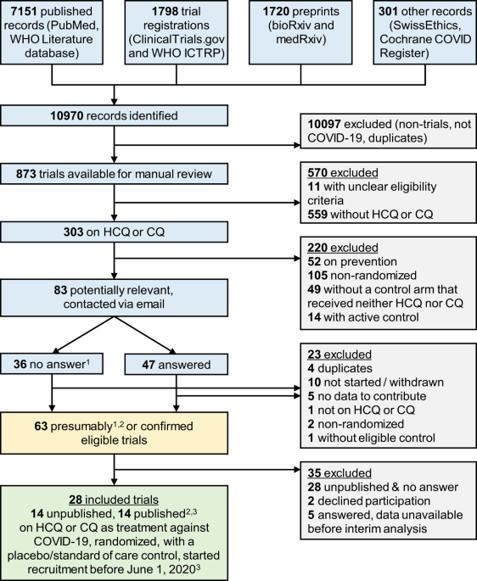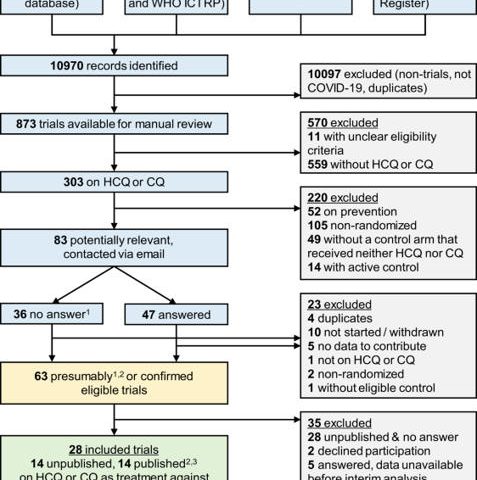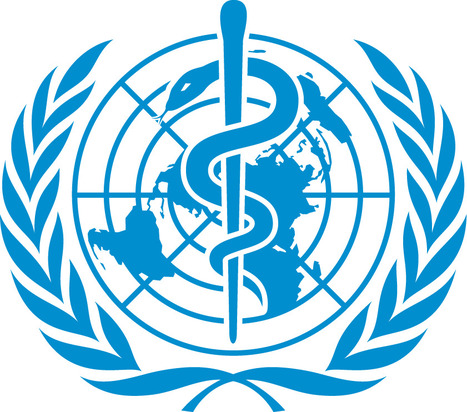Mortality outcomes with hydroxychloroquine and chloroquine in COVID-19 from an international collaborative meta-analysis of randomized trials

« On est là pour convaincre, pas pour contraindre » : le « rétro-tracing » se déploie pour mieux contrôler l’épidémie de Covid-19
27/06/2021
Digital technologies in the public-health response to COVID-19
27/06/2021 
Substantial COVID-19 research investment has been allocated to randomized clinical trials (RCTs) on hydroxychloroquine/chloroquine, which currently face recruitment challenges or early discontinuation. We aim to estimate the effects of hydroxychloroquine and chloroquine on survival in COVID-19 from all currently available RCT evidence, published and unpublished. We present a rapid meta-analysis of ongoing, completed, or discontinued RCTs on hydroxychloroquine or chloroquine treatment for any COVID-19 patients (protocol:
). We systematically identified unpublished RCTs (ClinicalTrials.gov, WHO International Clinical Trials Registry Platform, Cochrane COVID-registry up to June 11, 2020), and published RCTs (PubMed, medRxiv and bioRxiv up to October 16, 2020). All-cause mortality has been extracted (publications/preprints) or requested from investigators and combined in random-effects meta-analyses, calculating odds ratios (ORs) with 95% confidence intervals (CIs), separately for hydroxychloroquine and chloroquine. Prespecified subgroup analyses include patient setting, diagnostic confirmation, control type, and publication status. Sixty-three trials were potentially eligible. We included 14 unpublished trials (1308 patients) and 14 publications/preprints (9011 patients). Results for hydroxychloroquine are dominated by RECOVERY and WHO SOLIDARITY, two highly pragmatic trials, which employed relatively high doses and included 4716 and 1853 patients, respectively (67% of the total sample size). The combined OR on all-cause mortality for hydroxychloroquine is 1.11 (95% CI: 1.02, 1.20; I² = 0%; 26 trials; 10,012 patients) and for chloroquine 1.77 (95%CI: 0.15, 21.13, I² = 0%; 4 trials; 307 patients). We identified no subgroup effects. We found that treatment with hydroxychloroquine is associated with increased mortality in COVID-19 patients, and there is no benefit of chloroquine. Findings have unclear generalizability to outpatients, children, pregnant women, and people with comorbidities. Hydroxychloroquine and chloroquine have been investigated as a potential treatment for Covid-19 in several clinical trials. Here the authors report a meta-analysis of published and unpublished trials, and show that treatment with hydroxychloroquine for patients with Covid-19 was associated with increased mortality, and there was no benefit from chloroquine.
Lire l’article complet sur : www.nature.com



